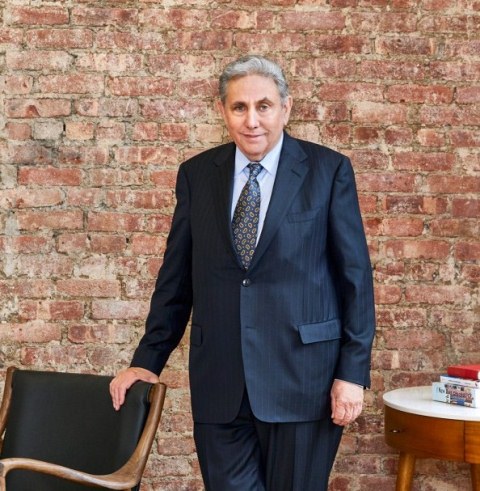- Home
- Building Success through Kindness: Jeffrey Gural’s Legacy of Leadership and Giving
Building Success through Kindness: Jeffrey Gural's Legacy of Leadership and Giving

With a portfolio spanning Manhattan’s most dynamic submarkets and a philanthropic footprint of over 3 million square feet, GFP Real Estate Chairman Jeffrey Gural has distinguished himself not just through savvy acquisitions and adaptive reuse projects, but through an innovative approach to property management that incorporates significant charitable initiatives.
“I actually had no interest in real estate,” Gural recalls of his early days. After graduating with a civil engineering degree from RPI, he found his first role with California’s State Highway Department before returning to New York to work with Diesel Construction. There, under the demanding leadership of Carl Morse, he worked on significant projects including 437 Madison Avenue, where he managed the entire process from demolition through completion of the 40-story building.
The experience taught him valuable lessons about getting things done. “Most people don’t understand that if you’re working for somebody, that person you’re working for really doesn’t want to hear why something didn’t get done,” he reflects. “There were no excuses.”
Initially resistant to joining the family business at Newmark, Gural’s perspective shifted when Diesel was sold to Aramark. His transition to real estate began with smaller projects, primarily converting old buildings into apartments using J-51 tax benefits – at the time, a crucial incentive program that made residential conversions financially viable in emerging neighborhoods. Newmark also managed showroom buildings, including 230 5th Avenue, where lamp companies maintained spaces for seasonal buyer visits – a snapshot of a New York real estate era that has largely disappeared.
A strategic partnership with leasing specialist Barry Gosin marked a pivotal moment. While Gosin revolutionized their leasing approach with innovative marketing strategies, Gural focused on acquisitions, particularly targeting industrial properties in what would become some of Manhattan’s most sought-after submarkets.
“It turned out to be lucky for us – tech companies today prefer these old buildings. They’d rather be in our spaces than pay $200 per foot for new construction,” Gural reflects on their portfolio across SoHo, NoHo, Flatiron, and Tribeca. This early focus on adaptive reuse positioned the firm perfectly for today’s creative office tenants seeking character-rich spaces.
Today, Gural’s passion shines through in his philanthropy-focused business model. Within his portfolio of over 3 million square feet of prime Manhattan real estate, he offers discounted rental rates to nonprofit organizations – an unprecedented commitment to community support within the industry. This strategy extends beyond traditional charitable giving, creating a unique portfolio management approach that has proven particularly resilient during market downturns while supporting vital community services.
His insight into market cycles reveals both business acumen and ethical leadership. “When times are good, everybody’s successful. When times are bad, you separate the men from the boys,” he observes, highlighting how maintaining strong relationships through market downturns has contributed to the firm’s longevity.
This relationship-first approach extends to his broader industry involvement, where he’s served as chairman of the Times Square Business Improvement District and maintains active board positions with the Real Estate Board of New York, Settlement Housing Fund, and numerous civic organizations.
“I enjoy giving money away,” Gural declares. His recent actions back up those words – he just gave $2 million to support 100 nonprofits near his upstate casino property, which he notes is “the largest, most money anyone’s given away up there ever.”
For Gural, it all comes down to legacy: “When you die, the only thing you leave behind is your reputation,” he reflects. “My whole philosophy is to give back so that I can leave my children and grandchildren with a good name.” This mindset has shaped how he’s viewed in the industry. “I think I’m better known for being a nice guy than I am for being a brilliant real estate person,” he observes, “because a lot of the people I compete with aren’t that nice.”
His decades of experience have given Gural a clear read on philanthropy in real estate. “Some people enjoy it. Other people hate to give money away,” he observes. After countless fundraising efforts, he knows exactly who’ll answer the call: “I know if I have to raise a small amount of money, $50,000, I know there’s five or 10 people I can call. Every one of them will write a check for five to ten grand. And I know there are people that if I call them, they won’t even take the call.”
In an industry that increasingly touts social impact, Gural’s genuine commitment to community engagement offers more than just talk – it proves that doing good and doing well can go hand in hand.
